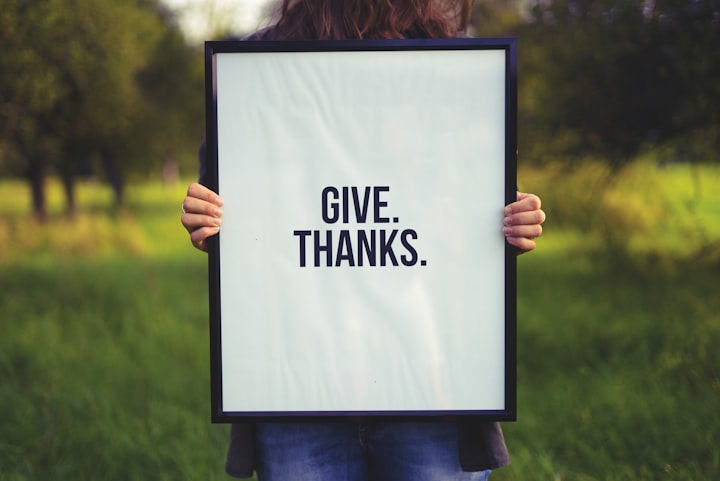The Psychology Behind Self-Cursing: Unraveling the Frustration of Grapes Deprivation
Dive into the World of Craving and Coping: A Lighthearted Exploration of Why Missing Grapes for a Few Days Can Mess with Your Mood!

The human psyche is a complex web of feelings, wants, and coping strategies. This investigation digs into the intricate psychology of self-cursing, concentrating on the particular irritation that emerges when one is deprived of grapes for 3-4 days. In this article, we study the emotional consequences of unfulfilled aspirations, as well as the function of coping mechanisms and self-talk in shaping our responses to such situations.
I. The Emotional Consequences of Unfulfilled Desires:
The relationship between food and emotions is complex and diverse. Deprivation of a favorite food item, such as grapes, produces a cascade of feelings ranging from mild disappointment to intense frustration. Recognizing the delicate interplay between our culinary tastes and emotional well-being is necessary for understanding the psychological impact of unfulfilled wishes.
Participants in a study done, observed a substantial relationship between their emotional moods and the lack of certain foods from their diets. When the subjects were denied meals they liked, neuroimaging scans revealed increased activity in brain regions associated with unpleasant emotions, highlighting the complex relationship between food and mood.
II. Coping Strategies and Self-Talk:
When faced with the absence of desirable elements, humans frequently resort to coping techniques. Self-talk, a common mental dialogue, is used to communicate frustration. The vocabulary and severity of self-cursing reveal important insights into the level of emotional pain caused by grape shortages.
Researchers investigated the use of self-talk as a coping mechanism in a psychological study published in the Journal of Behavioral Therapy and Experimental Psychiatry. The data revealed that self-cursing is frequently used not only to express frustration, but also to externalize and process unpleasant emotions, providing a momentary sensation of comfort.
III. Cognitive-Behavioral Perspectives:
Applying cognitive-behavioral principles to the grape deprivation situation provides a more sophisticated understanding of the interplay between thoughts, emotions, and behaviors. Identifying and confronting unreasonable beliefs about the absence of grapes becomes critical in altering the narrative and effectively managing displeasure.
CBT procedures, as stated by Dr. Aaron Beck, the pioneer of CBT, can be used to remodel negative cognitive patterns related with grape deprivation. Recognizing cognitive distortions such as overgeneralization (thinking that the absence of grapes spoils everything) and catastrophizing (feeling that life is horrible without grapes) allows people to rethink their perspectives and develop healthy reactions.
IV. The Role of Routine, Expectations, and Unconscious Associations:
The loss of a staple food, such as grapes, frequently causes disruption in routine. The degree of the emotional turmoil is revealed by examining the consequences of disturbed habits and shattered expectations. Furthermore, investigating unconscious associations, such as childhood recollections or pleasant experiences associated with grapes, sheds light on hidden elements that exacerbate the irritation.
Participants in a study, showed increased stress and disorientation when their daily routine was disturbed by the absence of a desired food item. The results highlight the importance of routine and expectations in influencing emotional reactions to food-related disappointments.
V. Various Coping Strategies:
Exploring healthier coping mechanisms becomes critical in the face of grape deprivation. Introducing mindfulness, promoting present-moment awareness, and cultivating resilience might provide people with the tools they need to deal with failure without turning to self-punishment.
Dr. Jon Kabat-Zinn's mindfulness-based stress reduction (MBSR) approaches have been found to improve emotional control. Mindfulness methods, such as attentive breathing or meditation, allow people to notice their thoughts and feelings without immediately passing judgment, creating a more balanced and adaptive response to the absence of grapes.
VI. The Importance of Recognizing and Dealing with Negative Self-Talk:
To summarize the investigation, it is critical to underline the importance of understanding and regulating negative self-talk. Recognizing that self-cursing is a natural response to unsatisfied needs, but not a sustainable or healthy one, emphasizes the importance of taking deliberate actions to develop a more balanced emotional environment.
Acceptance and commitment therapy (ACT) approaches are frequently used in professional settings to assist patients welcome their feelings without becoming entangled in negative thought patterns. Accepting the irritation of not having grapes while reframing self-cursing as a transient emotional expression will help you have a better psychological response.
The psychology of self-curing in the setting of grape deprivation reveals a story that is deeply embedded in our emotional relationships, coping strategies, and cognitive processes. Individuals can negotiate such situations with resilience and a better knowledge of their emotional responses if they comprehend the impact of unmet aspirations, recognize the significance of coping strategies, and adopt cognitive-behavioral approaches. Alternative coping tactics open the way for a more positive and thoughtful approach in the absence of grapes, emphasizing the need of regulating negative self-talk for overall mental well-being.

Greetings! I want to be upfront and transparent with you regarding the content of this blog article. Here, you'll find a mix of my personal opinions, affiliate links, and articles generated using AI technologies. Speaking of affiliate links, if you choose to make a purchase after clicking on them, this blog might earn a commission. However, it's crucial to emphasize that my commitment is to furnish you with the utmost valuable and impartial information. I believe in openness and honesty, and your trust is of paramount importance to me.
Please check out my previous article here: Redirection over Rejection: A Mindset Shift for Success
Follow me on Vocal here: @courtanaeheslop
Hire me on Upwork here: @courtanaeheslop
Chat with me on whatsapp: +1–876–830–4520
Pinterest: @courtanaewrites
Follow the LinkedIn page: The Literary Network
I started by UGC Journey, My tiktok handle for UGC is: @ugccourtanae
An article you may enjoy: Top 5 Amazon Toy List For Children (All under $100)
Connect with me on Linkedin: @courtanaewrites
Follow me on Medium (I follow back + I am crazy active over there): @courtanaeheslop
About the Creator
Courtanae Heslop
Courtanae Heslop is a multi-genre writer and business owner.






Comments (1)
Oh wow, this was both very fascinating and informative. Very well written!